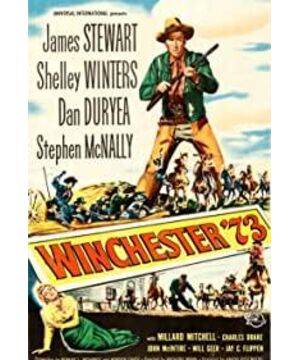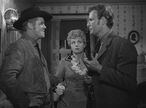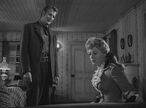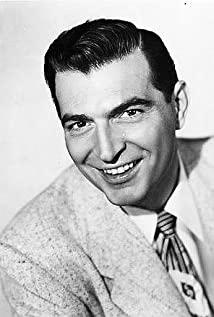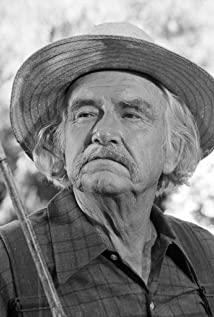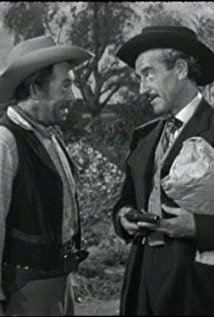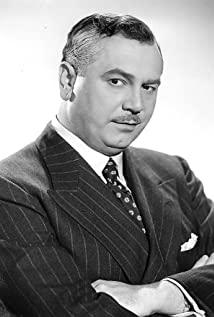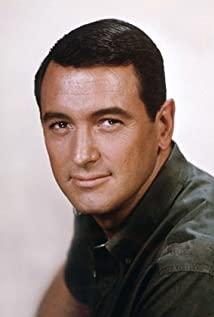The life-and-death confrontation at the end of Anthony Mann's "Invincible Serial Gun" was originally an official expected paragraph. The director also deliberately used natural scenery such as cacti and mountains to set off and render it, but the scene of the gun battle was still tedious and tedious. What is particularly unacceptable is that the heads and torsos of the two sides are repeatedly exposed to each other, but the bullets can only constantly greet the surrounding rocks. But it must be said that the ending may be the only point of criticism in the film, otherwise it is perfect. Among them, the "shooting contest" in the opening part is the real climax of the film because it presents the "fast and accurate" characteristics of the shooter in the most accurate way!
Stewart and his friends rode to a western town. The town is hosting a shooting competition, and the winner will be a one-in-a-million "Winster 73" rifle. In the bar, Stewart suddenly encounters an enemy. However, because both sides handed over their guns to the police after entering the town, the conflict did not break out. Two people who hated each other entered the game under the lobbying of the sheriff. After two rounds of competition, only the two of them hit the bullseye three times. After the target retreated 25 meters, it was still a draw. Can only change to play "flying saucer" to win. Neither side missed a dollar coin. When I replaced it with an iron ring with a smaller diameter, I finally got the distinction... the brilliance of which is not enough to describe in a brief description. Relaxed cutscenes, nuanced characterizations (the aggressive gaze and dialogue between Stewart and the enemy, the sheriff's poise and witty humor), and clever suspense settings (how to judge a shot in a hoop ), it's only really engaging when you sit in front of the screen.
After the game, a group of unwilling enemies attacked and injured Stewart, who had just won, and stole 73. Without retrieving the equipment of the police station, he ran away in a panic. In a tavern somewhere, the three of them happened to meet a traveling businessman who had sold guns. On one side are gangsters who are eager to rearm but have no money, and on the other are individual businessmen who do not give in on price. The two sides began to bargain. Structurally, it was an unimportant cutscene. But under the careful arrangement of the director, it became full of tension. Especially the dragon actor who played the businessman, his performance was excellent. You could even say he stole the whole scene. Of course. This may also be related to the director's use of a long lens, a deep focus and a large depth of field, and the person has been sitting in the foreground.
And when it comes to the tricks or small supporting roles stealing the scene, I have to sigh. Where are the old Hollywood movies better than the current ones? According to the film critic Roger Ebert, at least one of them is "not just relying on one or two big stars to shine, but all actors are very charming" (to the effect). This is indeed the case. The glasses maid who keeps extorting money in "Frightening the Sea", the fat man who guides the way while picking up barbecued pork in "Adventures on the South Street", the timid sheriff in "Two Tigers and Dragons", and the Small town newspaperman who doesn't want to be a councillor. Which is not vivid in character and vivid in character, leaving a deep impression on people? In contrast, the new version of "Battle of Yuma Town". The whole story is about Crow and Belle acting in a pretentious manner. And the escort police officer next to them who escaped at the last moment wanted to have no looks (not handsome) and no character. It's a shame to see it as tasteless, and it's a pity to abandon it...not enough.
The film's dialogue has the temperament of a classic Hollywood film: delicate, subtle, yet humorous. One of them left a deep impression. Stewart hands Sydney a pistol before the war with the Indians. Remind her to keep one last bullet for herself to avoid being caught and humiliated. After retreating to the enemy, the two said their goodbyes, and the woman left a bullet as a souvenir. Since then, the film started with Sydney as the main line. After several twists and turns, she was held hostage by the fast gunmen, and she met with her enemy and her party to plan to rob a bank. The woman accidentally found a photo of Stewart with the enemy and was touched by the scene, and took out a bullet to play with it. When the enemy saw it, he asked casually:
- Who gave this to you?
- It's the person in your photo.
- You know him?
- Yes.
- Then we both have something in common.
- Oh?
- He's always wanted to give me one too...
Compared to Hawks-like obsession and revelation of the ruthless and Ford-like dark side, Mann's protagonist presents a lot more than the basic characteristics of a western hero. The sentimentality of ordinary people. They usually don't deliberately cover up their inner world, and they are often moody and angry. At the end of the film, Stewart, who was eager to find out the whereabouts of his enemy, tried his best to twist the gunner's arm in front of the bar to press him. The facial contortion is almost hideous. At the end of Mann's other western classic "The Naked Thorn", the protagonist played by Stewart even burst into tears in front of Janet Lee (whether it is the only western hero in film history to cry). At the same time, they treat women politely and caringly, and they can be regarded as models of gentlemen. At the beginning of the film, seeing the sheriff (who didn't know at the time) turn around the disreputable dancer Sydney into the car, Stewart immediately stepped forward to stop it, and thus won the woman's favor. Later when the two reunited at the valley camp. In order for the woman to sleep peacefully at night, Stewart laid the saddle very thoughtfully. In "Naked Thorn", when the team escorting the fugitives returning from the bounty was raided by the Indians, the only female Janet Lee in the team who chose the body cover for the first time was Stewart.
This kind of character trait not only enriches the character itself, but also makes the female characters who usually belong to the vase status in Westerns have more room for plasticity. They changed the single-line love at first sight, and often had to go through all kinds of cruel tests like the hero, and achieve self-improvement in the process. Although, what men perfect is their own character weaknesses, and what they perfect is their understanding of men. In both films, Sydney and Janet Lee were not Stewart's girlfriends at first. The former only had a slight crush on him after they met; the latter was even the girlfriend of his nemesis, the bounty-wanted man Robert Wren. But with the development of the plot, especially after the life-and-death struggle with the Indians, they became more and more aware of the precious qualities of this man. And these qualities are even more shining in the contrast of their boyfriend's gradually exposed cowardly selfishness, insidious cunning. So the balance of love began to tilt inadvertently...
The complex emotional entanglement provides more choices for the dramatic conflict. But the film did not violate the audience's psychological expectations of "beauties love heroes". After all, when the protagonist is a man as charismatic as James Stewart, any attempt to be different is ill-advised. By contrast, Howard Hawks in "Slaying the Dragon" was somewhat ill-considered in making the long-legged beauty fall in love with Wayne, who was old enough to be her uncle. Although it must be admitted that John Wayne is also a very attractive man, it seems that his charm should not be expressed in the attraction of young aliens? At least not a strong point. Of course, some people may say that things between men and women belong to the love of radish and cabbage, and there is no certain rule. I have no need to refute this. Because John Ford, another master of Westerns, has already made corrections to the mistakes of the silver fox in his "Two Tigers and Dragons": Mills, who should have been a good hope to become John Wayne's wife, is handsome and handsome. Stuart (an old handsome guy. But all three actors were a bit old at the time) came to town and was immediately attracted to him and eventually married him.
View more about Winchester '73 reviews


